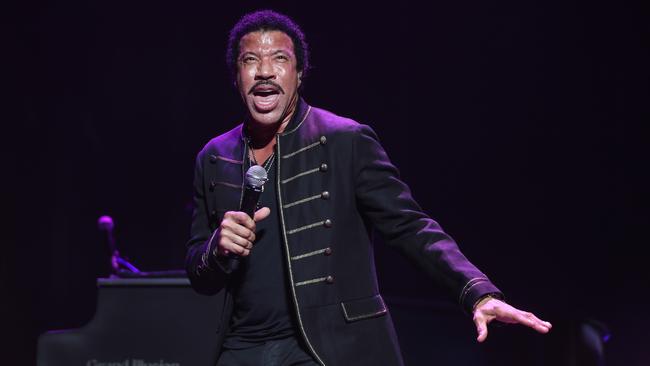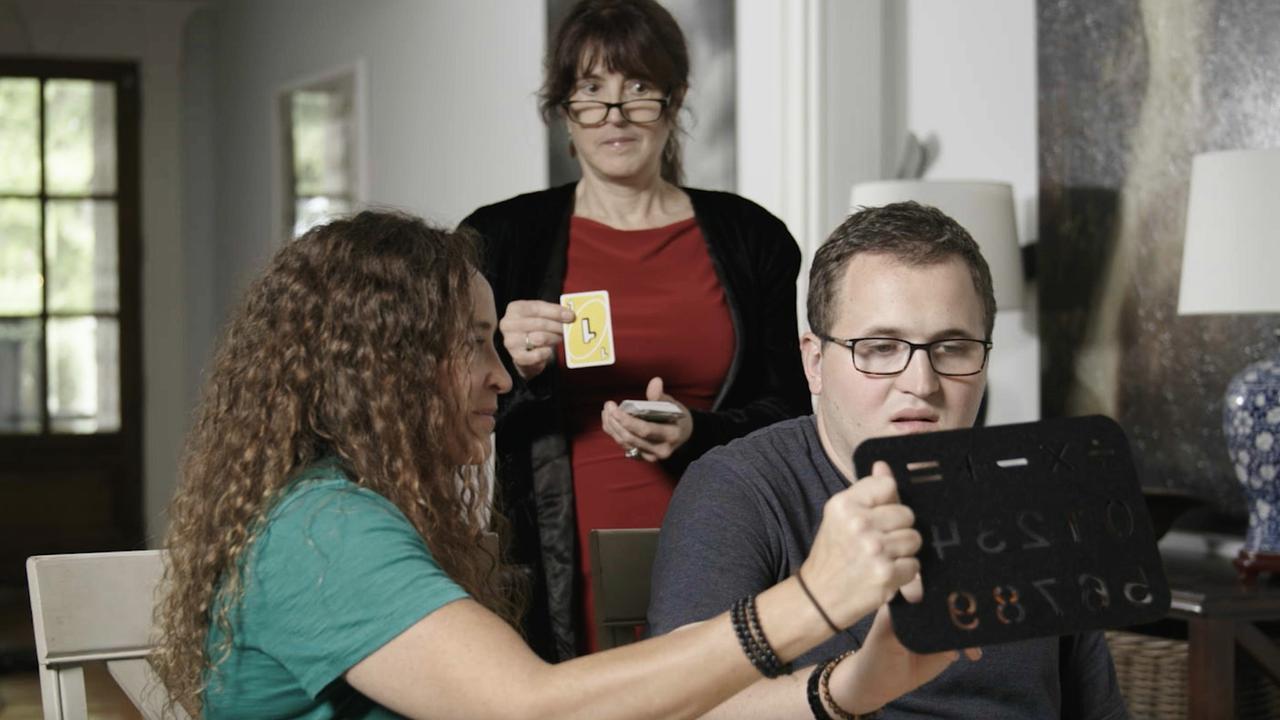Lionel Richie’s Hello sums up the American singer’s appeal
In the 80s his star status was tinged with scorn for his sappy songs. Now Lionel Richie is riding a new wave of fandom.

Lionel Richie’s Hello begins discreetly, almost sneakily, floating a sour little synthesiser melody over tiptoeing piano chords. The song crept into the collective consciousness in similarly stealthy fashion. It arrived in late 1983, buried on Richie’s Can’t Slow Down, the second solo album by the former Commodores singer. Reviewers took little notice of the track, but when Hello was released as a single in February 1984, it shot to No 1 on Billboard’s Hot 100 and topped charts across the globe.
In the decades since, Hello has never said goodbye. It’s one of those adult-contemporary ballads that has taken up residency in the ether, seeping from the walls of dentists’ offices and tinkling on the phone line while you are on hold. It’s a song that has been judged soothing and innocuous enough to serve as muzak — not necessarily an insult, but definitely a misapprehension of the fearsome beast that Hello is.
The song’s narrator is a lovelorn weirdo who is both hapless — “Tell me how to win your heart / For I haven’t got a clue / But let me start by saying / I love you” — and vaguely sinister. The refrain, “Hello? Is it me you’re looking for?” sounds benign, but in the video, a dazed-looking Richie stalks the halls of an art school, mooning over a blind sculptor at least 15 years his junior.
Recently, Hello has seduced a new generation that discovered the video on YouTube. The highlight comes in its final scene, when the sculptor-heroine unveils a hideous terracotta bust of Richie. Today on Facebook you’ll find a “public figure” page devoted to “The Clay Head From the Lionel Richie Hello Video”. There was a viral Craigslist post titled “Ceramic bald Lionel Richie bust wanted”, soliciting an artist’s replica of the sculpture, with a twist: “I’d like it to be bald, as I intend to re-create [Richie’s] lovable afro-mullet with some sort of cream-cheese dip at parties.” A Google search yields hundreds of Hello-themed items: throw pillows, teapots, cutting boards (“Hello, is it me you’re cooking for?”). The arrival, last October, of Adele’s blockbuster Hello — same title, different song — jolted the online world again, prompting dozens of Richie-Adele mash-ups.
The revival of Hello is a curiosity. But it’s also a testament to the magnetism of Richie, 66, a more durable presence, and a finer musician, than many have cared to admit. The meme-ing of Hello has coincided with a wider Richie resurgence. Tuskegee (2012), Richie’s 10th studio album, was a surprise hit that paired the singer with country stars in new renditions of Easy, Say You, Say Me and other chestnuts. Richie has spent several years barnstorming arenas, quietly re-emerging as a top-grossing touring act. Last June, he played the Glastonbury music festival in England, drawing raves and a crowd of nearly 200,000, the festival’s largest.
Back in the 1980s, I had mixed feelings about Richie: affection for his inescapable hits and regard for his craftsmanship, tinged with disdain I had absorbed from rock critics. He had been the Commodores’ resident softy, the maudlin voice of Three Times a Lady, almost too genteel for the band’s tame brand of funk-soul. Critics offered respect, but scorn leaked through: “unctuous”, “milquetoast”, “whitebread”. The bottom line: Richie was talented, but too slight and sappy to be taken seriously. Today he stands as the biggest 80s pop star who is not quite canonised.
He has sold tens of millions of records worldwide, most of them in the 80s, when he strode lofty heights alongside Michael Jackson, Madonna and Prince. But he couldn’t match the charisma of those dynamos. The industry celebrates his hit-making: there was an all-star Richie tribute at last month’s Grammys. Still, the highest sort of esteem is denied him.
A reappraisal may be in order. What hits me hardest is the robust beauty of Richie’s voice — a smooth baritone roughened by hints of grit — and the casual virtuosity with which he puts it to use. Listen to the 1981 Diana Ross duet Endless Love, in which Richie enfolds his partner’s rather colourless singing in plush, precise harmony vocals, airlifting the song to its rightful place: the honeymoon suite of a very posh hotel. That mix of understated and overwrought is pure Richie. He deploys one of pop’s subtlest skill sets in the service of ferociously corny songs.
The schmaltz gushes through Richie’s lyrics. “Lady, I’m your knight in shining armour, and I love you,” goes the opening line of Lady (1980), the smash that Richie wrote for Kenny Rogers. Lest the message be unclear, Richie presses the point: “My love, my love, there’s somethin’ I want you to know / You’re the love of my life.” Richie’s eternal theme is amour fou; his poetic mode is: pour it on. To Richie, you’re not just a lady. You’re once, twice, three times a lady. Richie loves love, but more than that, he loves saying “I love you” — and he loves saying how much he loves saying “I love you.” Consider a couplet from Hello: “I long to see the sunlight in your hair / And tell you time and time again how much I care.”
The miracle is that Richie makes such sentiments stick. Credit his melodic gift and his knack for arrangements that wash over listeners in cresting, tumbling waves. Hello is typical, with stately verses that open into a wind-whipped chorus. When the song rears up into its final refrain, the effect is that of a unicorn rising on its hind legs to meet the purple dawn.
In short, Richie is a great singer-songwriter and a world-historical cheeseball. A century-plus of pop history has not erased the squeamishness we feel when faced with ballads such as Richie’s. Music critics have largely abandoned old snobberies, embracing commercial pop in all its gaudy splendour. Yet songs like Hello remain for many a bridge too far.
But pop culture has evolved a nifty system, allowing us to luxuriate in music we pretend to hold at arm’s length. The campy karaoke performance, the TV comedy sketch — these bring songs back to us under the cover of irony. It’s canon-making, 2016 style: we mock-venerate old records as kitsch and, lo and behold, they get inscribed in the celestial songbook.
Richie knows how this game is played — how to laugh at himself, politely and all the way to the bank. Last year he appeared on The Tonight Show Starring Jimmy Fallon, or rather, his disembodied head did: Richie played the role of the Lionel Richie bust, duetting with Fallon in a Hello spoof. When Richie performs, though, the irony melts away.
That’s what happened at Glastonbury, where a crowd of mostly white rock fans greeted Richie in high tongue-in-cheek mode. But when the opening strains of Hello sounded, the throng erupted, joining Richie in a singalong as joyously cathartic as any you will hear. Suddenly, Hello wasn’t a tacky 80s artefact — the song was a communal hearth fire, casting a rosy glow over 200,000 souls.
It was an example of pop’s mysterious sorcery, the way certain alchemical blends of music and words strike us right in the gut, circumnavigating our high-minded aesthetic ideals and studied postures. It was a reminder that some of the most powerful songs are the most gauche, scrambling together beauty and vulgarity, exquisite craftsmanship and appalling taste, exalted chivalric love-oaths and the queasy come-ons of a dork with a mullet. As for that clay head from the Hello Video: it works equally well as a platter for your cream-cheese dip and a bust on pop’s Mount Rushmore.
The New York Times Magazine


